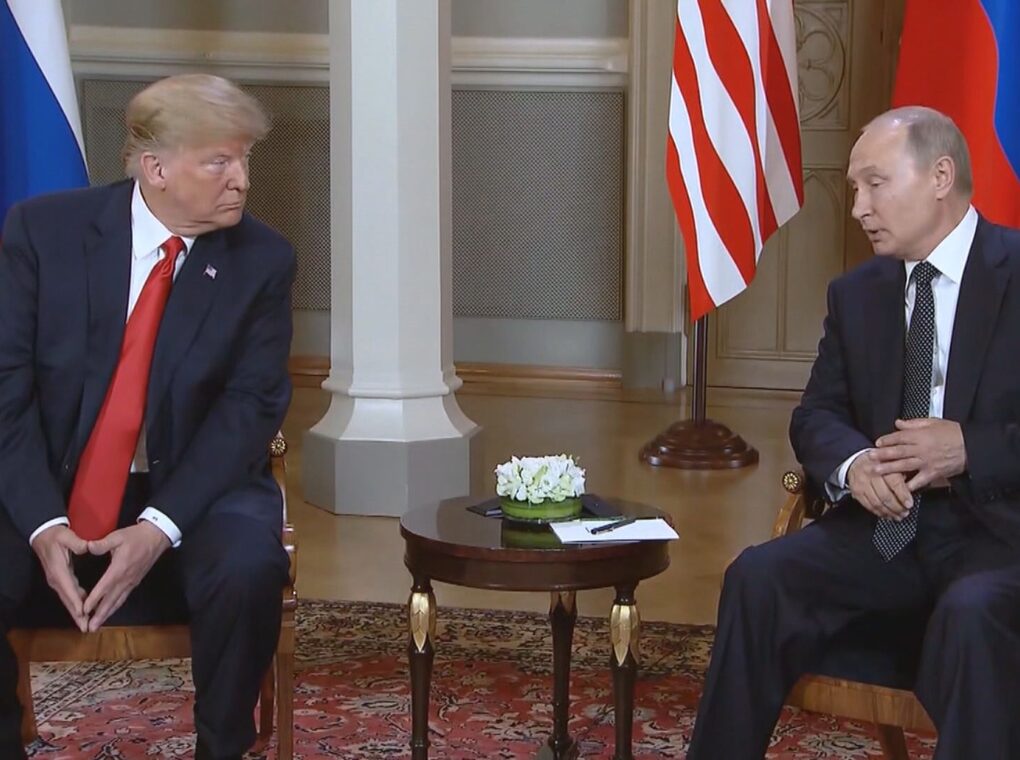On August 15, 2025, U.S. President Donald Trump and Russian President Vladimir Putin will meet face-to-face for the first time in years — and the chosen venue has raised eyebrows: Alaska.
Not Washington. Not Moscow. Not Geneva. So why Alaska?
The choice is far from random. It’s a meeting point steeped in history, layered with geopolitical symbolism, and ripe with strategic advantages for both leaders — especially for Putin.
Officially: Peace Talks. Unofficially: A Power Stage
Trump has described Alaska as a “very popular” choice, framing the summit as a chance to broker a ceasefire in the three-and-a-half-year war between Russia and Ukraine.
But behind the official narrative, the location offers Putin three key benefits:
Proximity & Safety — Alaska is just 55 miles from Russia across the Bering Strait. Putin can avoid long-haul flights over NATO airspace and, because the U.S. is not part of the International Criminal Court, he faces no legal threat of arrest.
Greater Russia Symbolism — The Russian political sphere often toys with the idea of “getting Alaska back.” Standing on U.S. soil next to Trump lets Putin project nationalist pride and imply Russia’s reach is undiminished.
Strategic Signaling — Alaska sits at the heart of the Arctic, an area central to Russia’s military and economic ambitions. Meeting there hints that borders — and by extension, territories — remain negotiable, a stance that echoes Putin’s position on Ukraine.
A Land with a Shared — and Contentious — Past
Alaska was once a Russian colony in the late 1700s, a remote hub for fur traders and missionaries. In 1867, Czar Alexander II sold it to the U.S. for $7.2 million (about $150 million today), a decision ridiculed in America as “Seward’s Folly.”
The so-called folly turned out to be a strategic goldmine — literally. The territory’s vast reserves of gold and oil became an economic boon for the United States. In Russia, however, the sale remains a point of lingering regret, even surfacing in pop culture. In the 1990s, lighthearted Russian songs joked about “getting our dear Alaska back.”
From Cold War Front Line to Arctic Chessboard
During the Cold War, Alaska was a nerve center of U.S. defense — home to missile sites, spy planes, and early warning systems. Today, its geographic proximity to Russia and its position in the resource-rich Arctic make it a critical piece in global strategy.
For Putin, meeting there underscores Russia’s status as America’s immediate neighbor — and a nuclear peer.
No Kyiv at the Table — ‘Yalta 2.0’?
Notably, Ukraine has not been invited to the summit. Critics have called it “Yalta 2.0,” referencing the 1945 conference where world powers decided the fate of postwar Europe without smaller nations present.
Trump has hinted at a possible territorial swap to end the war — a concept that alarms Kyiv, whose constitution prohibits ceding land. The absence of President Zelensky allows Putin to press his demands directly, without Ukrainian resistance in the room.
Mutual Benefits, Different Goals
For Trump, hosting in Alaska plays into his image as a dealmaker, while keeping negotiations on American soil. For Putin, it’s a chance to show he’s not isolated internationally, to stand as an equal to a U.S. leader, and to tap into Russia’s imperial nostalgia — even if only in symbolism.
A Win for Putin Before Talks Begin
Whether the summit produces a ceasefire or not, Putin gains simply by setting foot on U.S. soil for the first time since 2015. The optics alone — Alaska’s history, its strategic position, and its role in Arctic geopolitics — make the event a symbolic victory.
August 15, 2025, won’t be just another date in U.S.–Russia relations. It will mark a new chapter in the story of a land once sold, never forgotten — and now back in the spotlight of a high-stakes global gamble.
